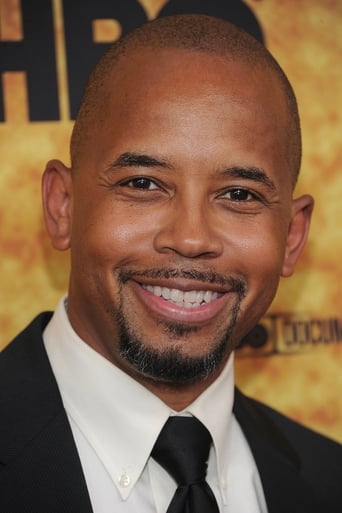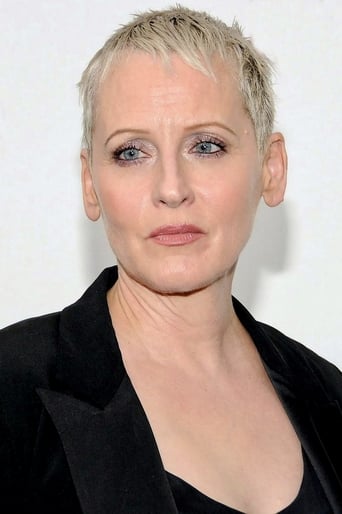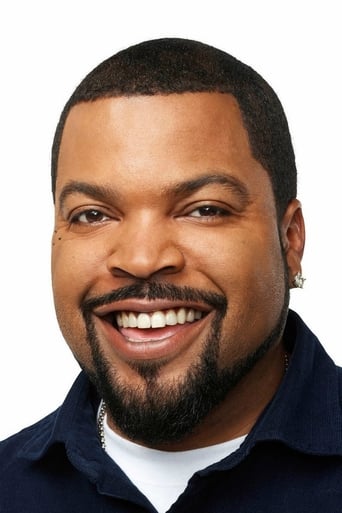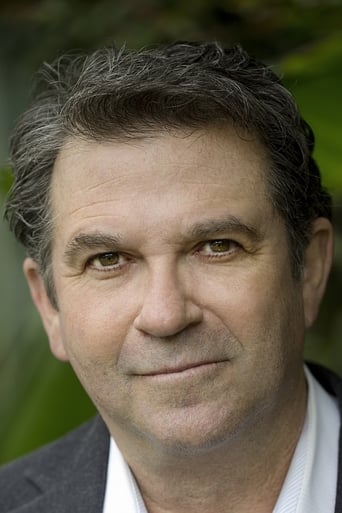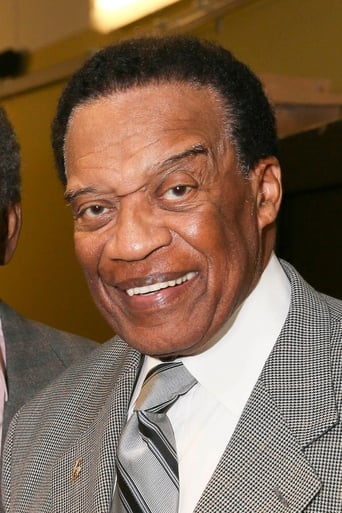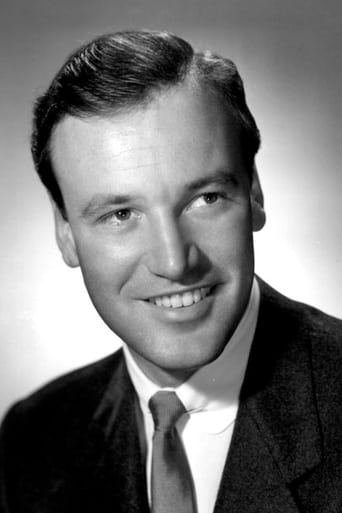GetPapa
Far from Perfect, Far from Terrible
Keira Brennan
The movie is made so realistic it has a lot of that WoW feeling at the right moments and never tooo over the top. the suspense is done so well and the emotion is felt. Very well put together with the music and all.
Nicole
I enjoyed watching this film and would recommend other to give it a try , (as I am) but this movie, although enjoyable to watch due to the better than average acting fails to add anything new to its storyline that is all too familiar to these types of movies.
Aspen Orson
There is definitely an excellent idea hidden in the background of the film. Unfortunately, it's difficult to find it.
efrancis-15956
Charles Burnett sculpts the movie with star protagonist JJ or John Johnson played by Michael Boatman is a young African American Cop who is excited and eager to be a police officer. He soon realizes that being a police officer is not what he expected as he soon realizes the wrong and dishonest dealings going on with in the Los Angeles Sheriff's Department. Our young Valen JJ teams up with another minority, young female officer Deborah Fields (Lori Petty) to right the wrongs and restore justice as any honest, moralistic young adult would do. These young officers' morals are what drives the plot and leads their actions to fulfill justice in their hypocritical department.JJ's suspicions began when he is involved with the unlawful arrest of Teddy Woods (played by Hollywood Star Ice Cube). He is convincingly framed as a murder, so much that JJ believes this until other suspicious behaviors leads him to the truth. Teddy Woods's case goes to court and becomes the center of attention to the audience via Deputy Johnson's role in arresting Mr. Woods, to reveal the injustices of the department. Throughout the judicial fiasco JJ and Deborah are harassed by other officers about being a minority in the white male department. If that isn't enough JJ must deal with a frustrated relationship with his girlfriend (you will have to watch and see for yourself if their romance endures).Young and Zealous JJ deals with more than just romantic issues and physical harassment. He develops an internal struggle with his morals over if it is more important to bring forth justice at whatever cost or bring justice through the law and in accordance with its procedures. This is strategically shown through JJ's interaction with friends and family outside of work. Johnson views many of his colleagues as men seeking to put the bad guys behind bars and willing to bend the rules in order to do so, a white lie as to why you pulled someone over if it means you are putting a bad guy behind bars.Many viewers of the film will undoubtedly connect this film's message with the Black Lives matter campaign and other civil rights protests. This aspect of the movie connects generations of Americans in three generations. A grandparent may connect to it from the civil rights movement in the 1960's, their child may relate to the movie in the time that it was released (1994) along with the Watts Riots, and finally the potential grandchildren and my fellow peers view the movie as a prophecy of the Black Lives matter campaign. While the ending may have been to potential of lack of money (as often is the case in independent films), this eight-million-dollar film does a great job of wrapping the viewer into the film to see a struggle that still is not resolved in our society despite the horrible acting that "hurts like getting hit with a bat". Yes, that is an actual line from the movie that comes during one of the worst scenes of acting I have ever seen. However, director Charles Burnett shows us hope through JJ.
Objectivity
I was hesitating between giving 8 or 9 and decided for a 9 when I thought "It was so difficult watching this film - it really showed well how frustrating some things can be in Life; I'm exhausted".And that in itself sums up this film : it does not have the top notch direction of Crash which won the 2006 Oscars, but, just like Crash, I was on the edge of my seat till the very very end of the film. I was punching the wall out of feeling as frustrated as some of the characters, I was tense and worried that someone was going to get shot, I was a total ball of nerves by the end. And for that alone I went for a 9 rather than an 8 : this film is 10 out of 10 in terms of drawing the viewer into the frustrations of police corruption, racism, sexism, cover-ups, minor mistakes which come back to haunt you big time, the effect on communities, fate. It is not a traditional Police film, it is a hundred times more than that.If you liked Crash 2006 (the one which won the Oscars), then you'll like this film. Guarantee.
kid_clementina
I just saw _The Glass Shield_ for the first time since it was released theatrically. I'm very glad to say it hasn't gone stale with time. Despite the violent overtones, the film is a subtle and compelling parable on race, power, and sex in the US. It won't satisfy anyone with the attention span of a fruit-fly or a fetish for blood and guts, but it gets under your skin (so to speak) if you pay it the slightest bit of attention.As a side note — this is one of the very few feature films chosen by the Whitney Museum of American Art for its biennial surveys of contemporary art (there was another film that year as well, _The Hours and Times_, also excellent).
Robert J. Maxwell
The movie itself isn't very good. It moves slowly and is badly photographed. The lighting makes too much use of neon blue, a popular fad around the time this appeared. The acting is okay, though, except for Ice Cube, who cannot seem to act. The score is routine. The script has two good things going for it.One is that the cops, though authoritarian in manner and attitude, are humanized without being sentimentalized. I'll give an example of what I mean by this. One scene, between Walsh and Ironsides, reveals to us and to Ironsides, that Walsh's cancer which had been though to be in remission has now metastasized and he's dying. Nothing much is made of the scene. Nobody breaks into tears. And Ironsides doesn't offer any false hope or, indeed try to comfort his friend in any way. He simply sits there and listens while Walsh, again without going into it, quietly talks about how he'd like to leave his family with a little something. The script and the director handle Walsh's death scene in the same understated way. Walsh's comrades try to revive him and finally give up. None of the assembled cops says anything. Cops wouldn't. But they are clearly moved by the passing of their friend. That's what I mean by "humanizing" them without "sentimentalizing" them.The second interesting thing about the film is that it dips a toe into some curious and seldom-dealt-with sociological waters. It brings up the question of primary allegiances. That is, to whom do we owe our main loyalty? Which group are we willing to make the most sacrifices for? Some groups are far more demanding of us than others. I may not care much about being a mailman, for instance, but I care an awful lot about being, say, an African-American mailman. Most ethnic groups are surrounded by clear social borders -- you're either one of us or you are not one of us. The same is true for some other groups -- doctors, airline pilots, U. S. Marines, and stunt men, to mention a few examples that I'm familiar with. Cops demand that kind of loyalty too. And here we have two "minority" members who find themselves working for the Sheriff's Office. Boatman is black and is a cop. Lori Petty is a woman (and a Jew, I think) and is a cop too. Which allegiance takes priority -- the allegiance to the minority group or to one's comrades on the police force? What happens when loyalties come into conflict?The film brings the question up but soon dumps it. Both rookies try to show their loyalty to their partners by hiding mistakes and so forth, but then they quickly return to the politically correct corners. Boatman realizes that he is black before he is blue. And why not? There's not a bad African-American to be seen. Petty undergoes a similar transformation.It's kind of a cheap way out. We can all feel satisfied now that our true identities have been found and all the corrupt and dissembling cops have been cleaned out. Sure.I wouldn't recommend this, really. The missed opportunities are wincingly obvious. It's rather overlong, too, and the story resembles "Serpico." Even the title is second-hand. "The Glass Shield." It sounds like a variation on the pop culture phrase, "the glass ceiling," suggesting that the female cop, Lori Petty, will run into prejudices. (She does, but that has nothing to do with the plot.) The title also references other paradoxical titles like "Steel Magnolias," "Iron Butterfly," "Led Zeppelin," "Limp Biskit", "The Glass Key." If it took more than five seconds to arrive at the title, the writers didn't deserve their paycheck.


